Speakers announced for the 2024 Molecular Imaging Symposium
The 2024 Molecular Imaging Symposium organizational team would like to announce the speaker line-up for the upcoming event happening Oct. 5th. The Symposium will be hosted in partnership by the UW Medicine Radiology Department, Fred Hutchinson Cancer Center (FHCC) and United Imaging. The conference will be held at the FHCC Pelton Auditorium, 9 a.m. – 5 p.m. with a reception to follow.
A diverse panel of experts will provide leading-edge perspectives on molecular imaging for neurologic and oncologic disease. All are welcome to attend, including faculty, researchers, trainees, students and radiological business professionals.
Attendance is complimentary, but pre-registration on or before Wednesday, September 25th is required. You may register here.
KEYNOTE SPEAKERS
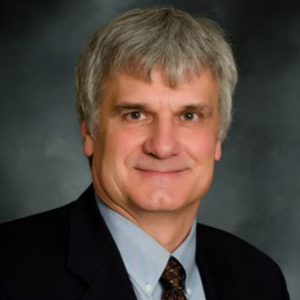 Bob Mach, PhD, Britton Chance Professor and Director of Radiochemistry Research, Department of Radiology, University of Pennsylvania
Bob Mach, PhD, Britton Chance Professor and Director of Radiochemistry Research, Department of Radiology, University of Pennsylvania
“Targeting PARP For Theranostics Development”
“Advances in Radiopharmaceutical Development for Neurodegenerative Disease”
Dr. Robert H. Mach is the Britton Chance Professor of Radiology at the University of Pennsylvania. He is a past President of the Radiopharmaceutical Sciences Council of the Society of Nuclear Medicine and Molecular Imaging (SNMMI), a recipient of the Michael J. Welch Award (2018) from the Radiopharmaceutical Sciences Council, and the Paul C. Aebersold Award (2022).
Dr. Mach is also a Fellow in the SNMMI (2021) and the Academy for Radiology & Biomedical Imaging Research (2019). He has over 300 publications and 30 patents; 28 clinical trials have been or are being conducted using radiotracers developed in his lab. He is the PI of two NIH Centers, a P30 Center from NIDA that is focused on the human neurobiology of opioid use disorder, and a U19 Center from the NINDS on developing PET radiotracers for imaging alpha synuclein and 4R tau.
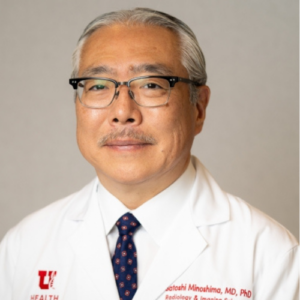 Satoshi Minoshima, MD, PhD, Professor and Chair, Department of Radiology and Imaging Sciences, University of Utah
Satoshi Minoshima, MD, PhD, Professor and Chair, Department of Radiology and Imaging Sciences, University of Utah
“Evolution of Clinical Neuro Molecular Imaging”
Dr. Satoshi Minoshima is Professor and Chair in the Department of Radiology and Imaging Sciences at the University of Utah. Dr. Minoshima is a radiologist specialized in Nuclear Medicine and Molecular Imaging. His scientific contributions in the field of Neuroscience include the discovery of very early sign of Alzheimer’s disease in the posterior cingulate cortex and worldwide dissemination of diagnostic statistical mapping technology. He has published over 170 peer reviewed articles and numerous book chapters, review articles, proceedings, and abstracts, and given over 300 presentations.
Dr. Minoshima served as the President of the Brain Imaging Council for the Society of Nuclear Medicine and Molecular Imaging (SNMMI) and currently serves as the SNMMI Chair of the Scientific Program Committee, SNMMI Vice President Elect, as well as the Chair of the Molecular Imaging Committee for the Radiological Society of North America (RSNA). He also works with the United Nations / International Atomic Energy Agency to advance the peaceful use of nuclear technology in medicine.
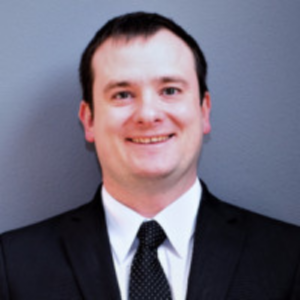 Josh Wiley, CNMT, PET, Lead Global Research Collaboration Scientist, United Imaging
Josh Wiley, CNMT, PET, Lead Global Research Collaboration Scientist, United Imaging
“Development of a Dedicated Brain PET/CT Scanner to Support Imaging Research”
Josh Wiley is a Lead Global Research Collaboration Manager for North America, South America and Australia/New Zealand where he has gained a proficiency in market research through an in-depth understanding of customer, market, and technology dynamics. Wiley has worked with both General Electric and United Imaging as a product manager focusing on PET and RT software applications, as well as CT, MR, MI, and DR products. He earned a Bachelor of Science in Nuclear Medicine and Chemistry from University of Wisconsin – La Crosse. After graduation, Wiley became a Certified Nuclear Medicine and Positron Emission Tomography Technologist, performing PET/CT scans in 5 states across the Great Lakes Region before eventually going on to manage multiple teams in the medical imaging sector.
ADDITIONAL HONORED SPEAKERS
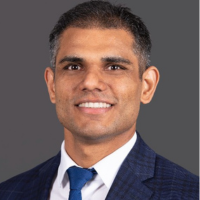 Gagandeep Choudhary, MD, Associate Professor, Department of Radiology, Oregon Health Sciences University
Gagandeep Choudhary, MD, Associate Professor, Department of Radiology, Oregon Health Sciences University
“Clinal Applications of Neuro Molecular Imaging”
Dr. Gagandeep Choudhary is an Associate Professor in the department of radiology, serving divisions of Nuclear Medicine and Neuroradiology. Dr. Choudhary’s area of expertise is Molecular Imaging and Neuroradiology with a special interest in Head and Neck Oncology, Neuro-Oncology, and Neurodegenerative Diseases. He has authored multiple articles, abstracts, and educational exhibits in the field of Neuroradiology and Molecular Imaging and has delivered multiple talks at regional and national meetings.
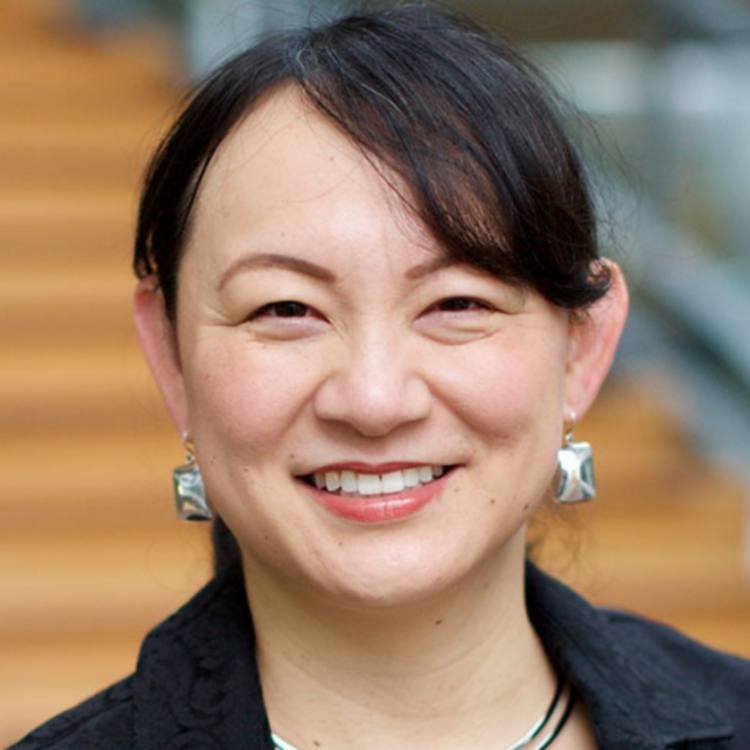 Delphine Chen, MD, Professor; Wil B. Nelp, Endowed Professorship in Nuclear Medicine; Director of Molecular Imaging, Fred Hutchinson Cancer Center
Delphine Chen, MD, Professor; Wil B. Nelp, Endowed Professorship in Nuclear Medicine; Director of Molecular Imaging, Fred Hutchinson Cancer Center
Opening and closing remarks and panel discussion moderator.
Dr. Delphine Chen is a board-certified nuclear medicine physician with broad expertise in PET and nuclear medicine molecular imaging diagnostic tests and specific clinical interests in cancer imaging and therapy. She believes that molecular imaging can provide unique information about cancer behavior that can affect treatment decisions. She is also committed to working with integrated collaborative multidisciplinary teams to provide the best possible imaging care for her patients.
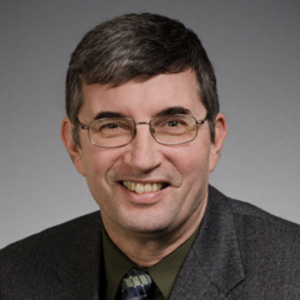 Thomas Grabowski, MD, Professor, Departments of Neurology and Radiology; Tim B. Engle Endowed Professorship for Brain Health Innovations; Medical Director of UW Memory and Brain Wellness Center; PI, Alzheimer’s Disease Research Center, University of Washington
Thomas Grabowski, MD, Professor, Departments of Neurology and Radiology; Tim B. Engle Endowed Professorship for Brain Health Innovations; Medical Director of UW Memory and Brain Wellness Center; PI, Alzheimer’s Disease Research Center, University of Washington
“The Clinical Role of Molecular Imaging in Neurologic and Psychiatric Research”
Dr. Thomas Grabowski is a UW professor of radiology and joint professor of neurology. He is a neurologist and an expert on the diagnosis and treatment of conditions affecting memory, language and cognition. He is the director of the UW Medicine Memory and Brain Wellness Center. He is also a cognitive neuroscientist who directs the UW Integrated Brain Imaging Center, dedicated to investigating the organization of the brain and the basis of cognition using MRI imaging approaches.
 Thomas Hope, MD, Professor, Vice Chair of Clinical Operations and Strategy, Department of Radiology, University of California San Francisco, Chief of Nuclear Medicine, San Francisco VA Medical Center
Thomas Hope, MD, Professor, Vice Chair of Clinical Operations and Strategy, Department of Radiology, University of California San Francisco, Chief of Nuclear Medicine, San Francisco VA Medical Center
“The Central Role of Molecular Imaging in Theranostics”
Dr. Thomas Hope is a radiologist and nuclear medicine physician (an expert in medical applications of radioactive substances). He specializes in neuroendocrine tumors, with a focus on peptide receptor radionuclide therapy, which targets these cancer cells with a high dose of radiation. He has a special interest in molecular imaging and in treating cancer using the targeted, individualized techniques of precision medicine.
In addition to working with patients, Hope conducts research on novel radiopharmaceuticals, or new radioactive imaging substances that can help physicians locate tumors. He also works on combining different imaging modalities – such as positron emission tomography and MRI – to stage cancer in patients.
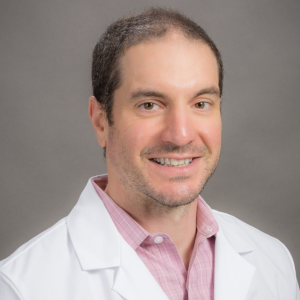 Mahmud Mossa-Basha, MD, Professor; Ellsworth C. and Nancy D. Alvord Endowed Chair in Neuro-Oncology; Vice-Chair of Clinical Research; Co-Director of Research Vascular Imaging Lab
Mahmud Mossa-Basha, MD, Professor; Ellsworth C. and Nancy D. Alvord Endowed Chair in Neuro-Oncology; Vice-Chair of Clinical Research; Co-Director of Research Vascular Imaging Lab
“PET/MR Clinical Service Experience at Fred Hutch”
Dr. Mahmud Mossa-Basha is a radiologist with UW Medicine. He received his medical degree from the University of Toledo and has been in practice for over a decade. He specializes in neuroradiology and is experienced in magnetic resonance angiography, cerebral angiography, cerebrovascular disorders, cerebrovascular disease, and contrast media.
 Dennis Organ, Pacific Northwest Carcinoid Net Support
Dennis Organ, Pacific Northwest Carcinoid Net Support
“What a Patient Experiences with Imaging and Theranostics Service”
Dennis Organ is one of the co-leaders of patient advocacy efforts for the Pacific Northwest Carcinoid NET Support Group and participates in multiple other advocacy and patient education efforts across the West Coast. He is passionate about sharing the patient experience, provides mentoring to NET patients nation-wide, and has helped to organize efforts to improve access to information for patients living with NET.
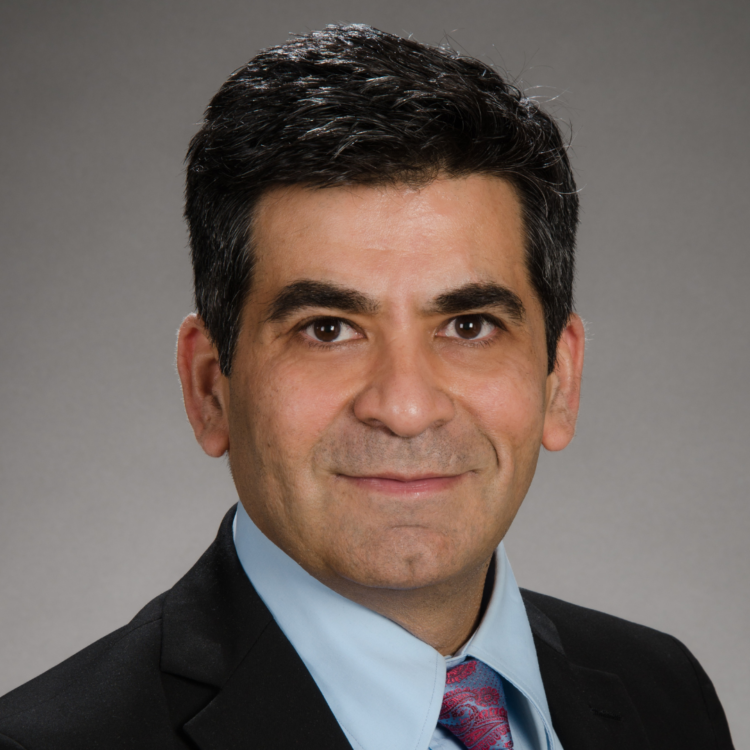 Dushyant Sahani, MD, UW Medicine Department of Radiology Department Chair and Professor
Dushyant Sahani, MD, UW Medicine Department of Radiology Department Chair and Professor
Opening remarks and panel discussion moderator.
Dr. Dushyant Sahani is an internationally renowned abdominal radiologist who has pioneered innovations in abdominal multimodality imaging that have advanced both research and clinical practice in cancer imaging, serving as the PI of multiple grant awards.
His passion for teaching and education to instill excellence and intellectual curiosity in the next generation of radiologists is also evident by the success of his trainees and the impact of his work in the field, recently recognized by an RSNA Lifetime Honored Educator Award, just one of many awards he has received throughout his career for his achievements in advancing the field of radiology. He has brought his innovative approaches to University of Washington, where he is leading the expansion of molecular and multimodality imaging to support transformative research efforts across all medical and scientific disciplines.
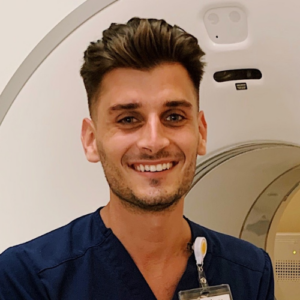
Zack Scherzer, MBA, CNMT, NMTCB(CT), Nuclear Medicine & Theranostics Lead, Fred Hutchinson Cancer Center
“Patient-Centered Clinical Operations Development for Molecular Imaging and Theranostics Services”
Zack Scherzer currently works as the Nuclear Medicine and Theranostics lead at Fred Hutchinson Cancer Center where he has gained a experience working with a diverse population of oncology patients. Previously working at Seattle Cancer Care Alliance as a Nuclear Medicine/PET Technologist, Scherzer joined Fred Hutch when the two organizations merged in 2022. He graduated from Saint Louis University in 2017 with a Bachelor of Science in Nuclear Medical Technology and went on to earn his MBA in Healthcare Management/Administration from Western Governors University. Scherzer is particularly interested in theranostics, PET, and management.
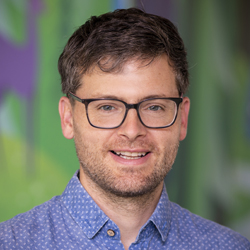 Caleb Stokes, MD, PhD, Acting Assistant Professor, Department of Pediatrics, University of Washington, Seattle Children’s Hospital
Caleb Stokes, MD, PhD, Acting Assistant Professor, Department of Pediatrics, University of Washington, Seattle Children’s Hospital
“Noninvasive Diagnosis of Microglial Activation to Guide Treatment of Viral Encephalitis”
Dr. Caleb Stokes is an assistant professor of Pediatrics at the University of Washington School of Medicine and an attending physician in pediatric infectious diseases Seattle Children’s Hospital. He completed medical school and his PhD training (in neurosciences) at the University of California, San Diego, followed by residency and fellowship training at the University of Washington. Caleb is a physician-scientist whose research focuses on central nervous system infections and neuroinflammation with an emphasis on viral encephalitis.
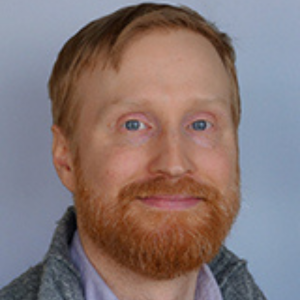 Garth Terry, MD, PhD, Assistant Professor, Departments of Psychiatry and Behavioral Sciences and Radiology, University of Washington, VA Puget Sound Health Care System, Seattle
Garth Terry, MD, PhD, Assistant Professor, Departments of Psychiatry and Behavioral Sciences and Radiology, University of Washington, VA Puget Sound Health Care System, Seattle
“Development of an Alpha-1a Adrenoceptor Selective Radioligand for CNS Imaging”
Dr. Garth Terry’s VA Career Development Award (VA equivalent of an NIH K-award) focuses on the translational development of imaging neuroinflammation with PET following repetitive blast mild traumatic brain injury (mTBI). In collaboration with David Cook’s lab, imaging neuroinflammation in a mouse model of repetitive mTBI provides an opportunity to compare imaging outcomes directly with histopathology in brain tissue, which is not possible in humans. In collaboration with Elaine Peskind, imaging neuroinflammation in Veterans with mTBI and persistent post-concussive symptoms provides neuroanatomical specificity to ongoing neuroinflammation, which to date has been informed using cerebrospinal fluid and serum biomarkers. To accomplish this, Dr. Terry’s laboratory evaluates and develops established and novel PET radioligands for biomarkers of neuroinflammation. Dr. Terry is also interested in developing novel radioligands for druggable targets for which there are no current, suitable radioligands available.
 Larisa Toderas, MBA, CNMT, RS, PET, ARRT (CT), Nuclear Medicine Imaging Ops Manager, Associate Radiation Safety Officer, Fred Hutchinson Cancer Center
Larisa Toderas, MBA, CNMT, RS, PET, ARRT (CT), Nuclear Medicine Imaging Ops Manager, Associate Radiation Safety Officer, Fred Hutchinson Cancer Center
“Patient-Centered Clinical Operations Development for Molecular Imaging and Theranostics Services”
Larisa Toderas is currently employed at Fred Hutchinson Cancer Center as a Nuclear Medicine Imaging Operations Manager and an Associate Radiation Safety Officer. Previously, Toderas worked for the Seattle Cancer Care Alliance in diagnostic imaging until the organization’s merger with Fred Hutch. Toderas earned an MBA in Healthcare Management/Administration at Western Governors University in 2017 before going on to graduate from the University of Edinburgh with a postgraduate degree in Diagnostic Imaging Science. Toderas has also been working as a certified PET/CT Technologist at Radia Inc. since 2018.